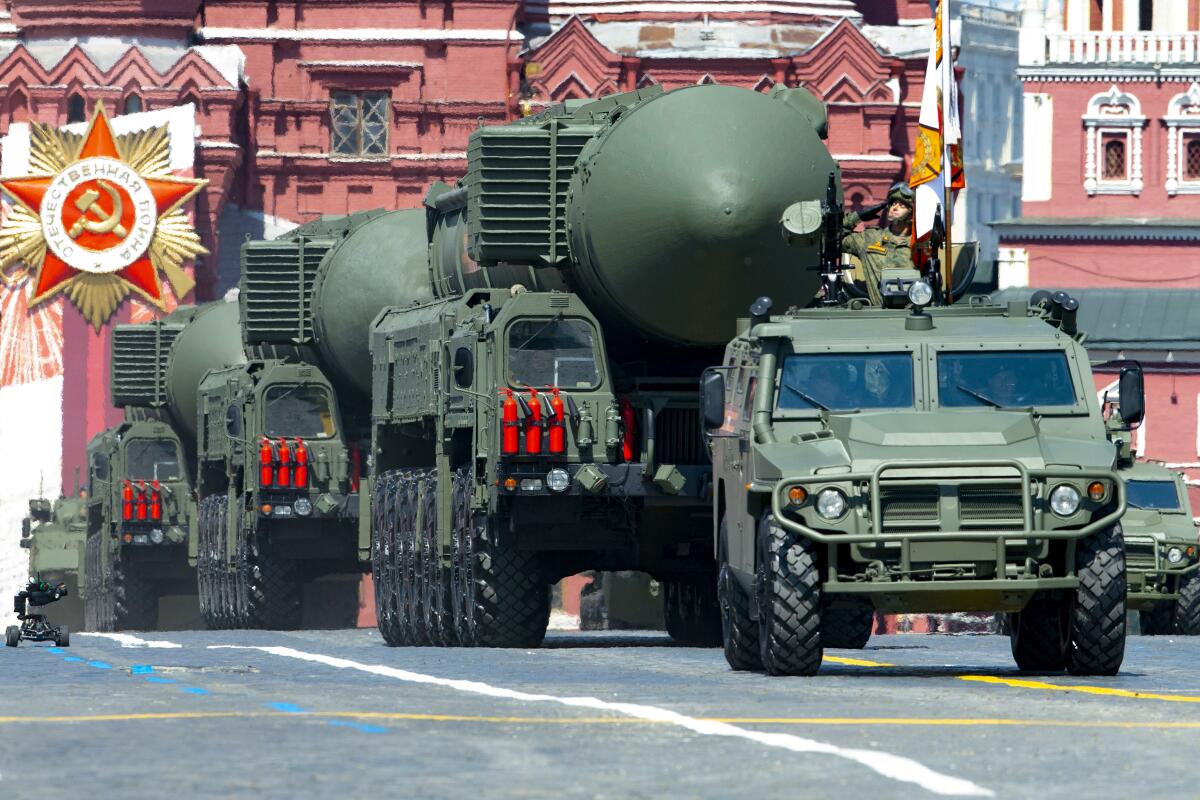Letters to the Editor: If the U.S. intervenes in Ukraine, it must plan for nuclear war

- Share via
To the editor: Many people mistakenly believe that we can get involved in “limited, conventional warfare,” without it escalating into a broader, possibly nuclear war. However, you cannot forget an old military adage: “The enemy gets a vote too.”
So let’s play out this scenario.
The U.S. and the North Atlantic Treaty Organization start conducting limited strikes on Russian troops. President Vladimir Putin, with mounting military losses, will likely resort to the only weapon in his arsenal that can inflict significant damage against NATO forces: tactical nuclear weapons.
Then, the escalation starts.
So if you’re going to talk about direct military intervention in any form, you need to first talk about neutralizing Russia’s nuclear capabilities. This could come in various forms such as cyber attacks, military strikes or bribing key Russian generals. Of course, there is no guarantee that we could eliminate the nuclear threat completely, no matter what option we pursue.
I am not opposed to direct military intervention. However, we just need to understand that if we pursue this course of action, it represents a major gamble — maybe even humanity’s last, if it goes awry.
Alexander Stewart, Newport Beach
..
To the editor: A letter writer compares the destruction in Ukraine to past far-off conflicts that did not spur calls for U.S. intervention.
Russia has launched an invasion of a sovereign country. It is not an internal conflict regarding religion or the superiority of one group’s ethnic antecedents over another. It is not an internal conflict about alternative systems of political governance.
There are a number of nations whose violent internal conflicts are being supported by other nations, it’s true, but none of those conflicts was the result of direct invasion by those other nations. The U.S. has a nasty habit of supporting factions in internal conflicts because it expects to result in benefits to the U.S., but those still are the results of internal conflicts.
Our country needs to think long and hard about strategies and tactics to support Ukraine without precipitating worldwide international warfare.
Karen Robinson-Stark, Pasadena






